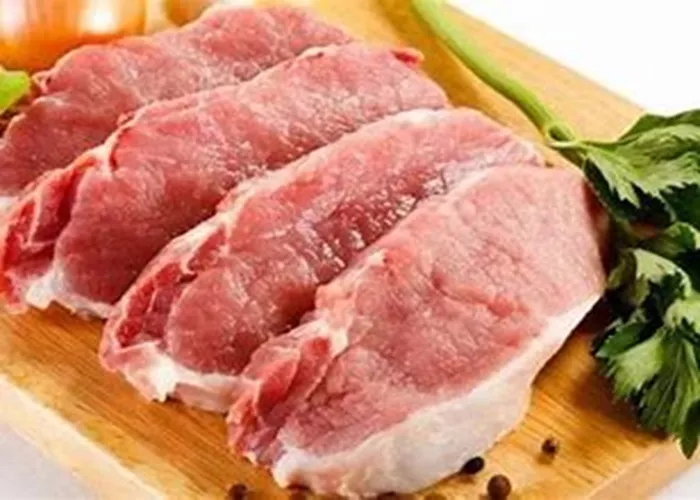When considering weight loss, many individuals turn to extreme diets, such as the idea of eating only meat. This dietary approach, often referred to as a carnivore diet or meat-only diet, has gained some popularity in recent years. However, I must caution against this extreme method, as it can lead to several health issues and may not be sustainable for long-term weight management.
Introduction to the Carnivore Diet
The carnivore diet is an eating plan that restricts food intake to animal-based products only. This typically includes meat, fish, poultry, eggs, and dairy products. Some variations may also include animal fats and oils. Proponents of this diet argue that it can lead to rapid weight loss, improve energy levels, and reduce inflammation. However, these claims lack scientific evidence, and the diet itself is highly controversial within the medical and nutrition communities.
Nutritional Imbalances
One of the primary concerns with a meat-only diet is the potential for nutritional imbalances. The human body requires a wide range of nutrients to function optimally, including vitamins, minerals, and essential fatty acids. While meat is a good source of protein, fats, and certain nutrients like iron and vitamin B12, it lacks many other essential nutrients.
Lack of Dietary Fiber: Meat is devoid of dietary fiber, which is crucial for maintaining healthy digestion and preventing constipation. Fiber also helps to regulate blood sugar levels and reduce the risk of heart disease.
Insufficient Micronutrients: Many essential vitamins and minerals, such as vitamin C, vitamin K, potassium, and magnesium, are found in fruits, vegetables, and whole grains. These nutrients are largely absent from a meat-only diet, leading to deficiencies that can affect overall health.
Imbalanced Fat Intake: While meat is a source of fats, it is often high in saturated fats, which can increase the risk of heart disease when consumed in excess. A balanced intake of unsaturated fats, found in plant-based foods like nuts, seeds, and avocados, is important for heart health.
Health Risks
In addition to nutritional imbalances, a meat-only diet can lead to several health risks, including:
Cardiovascular Disease: High intake of saturated fats and cholesterol from meat can increase the risk of heart disease. This is particularly concerning given that heart disease is the leading cause of death globally.
Kidney Problems: Excess protein intake, as seen in a meat-heavy diet, can lead to increased kidney workload and potential kidney damage over time.
Cancer Risk: Some studies have linked red and processed meat consumption to an increased risk of certain types of cancer, such as colorectal cancer. While the exact mechanisms are not fully understood, it is believed that certain compounds in meat, such as heterocyclic amines and polycyclic aromatic hydrocarbons, may contribute to cancer development.
Digestive Issues: The lack of fiber in a meat-only diet can lead to digestive issues, including constipation, bloating, and gas.
Osteoporosis: A lack of calcium and vitamin D, both essential for bone health, can increase the risk of osteoporosis and bone fractures. While meat contains some vitamin D, it is not a significant source of calcium.
Impact on Weight Loss
While some individuals may initially experience weight loss on a meat-only diet due to reduced calorie intake and the high protein content, this method is not sustainable or healthy for long-term weight management.
Reduced Calorie Intake: The restriction of food groups, such as fruits, vegetables, and grains, can lead to a natural reduction in calorie intake. However, this is not a healthy or balanced way to lose weight.
Protein Satiety: Meat is high in protein, which can increase satiety and reduce hunger. However, relying solely on protein for satiety can lead to nutrient deficiencies and an unbalanced diet.
Lack of Sustainable Changes: Extreme diets like the carnivore diet are often difficult to maintain and can lead to rebound weight gain when the diet is stopped. Sustainable weight loss requires a balanced, nutritious diet combined with regular physical activity.
Better Alternatives for Weight Loss
Instead of resorting to extreme diets like the carnivore diet, there are several healthier and more sustainable alternatives for weight loss:
Balanced Diet: A balanced diet that includes a variety of food groups, such as fruits, vegetables, lean proteins, whole grains, and healthy fats, is essential for overall health and weight management.
Portion Control: Managing portion sizes and paying attention to calorie intake can help with weight loss without resorting to extreme diets.
Regular Physical Activity: Incorporating regular physical activity, such as walking, jogging, swimming, or strength training, into your daily routine can help boost metabolism and burn calories.
Mindful Eating: Practicing mindful eating, such as paying attention to hunger and fullness cues, chewing slowly, and avoiding distractions during meals, can help with weight management.
Professional Guidance: Consulting with a healthcare provider or a registered dietitian can provide personalized guidance and support for healthy weight loss.
Conclusion
In conclusion, a meat-only diet is not a healthy or sustainable approach for weight loss. While it may lead to initial weight loss due to reduced calorie intake and high protein content, the long-term health risks and nutritional imbalances make it an unsafe choice. Instead, individuals should focus on a balanced diet that includes a variety of food groups, portion control, regular physical activity, mindful eating, and professional guidance for healthy weight management.
Related topic:


